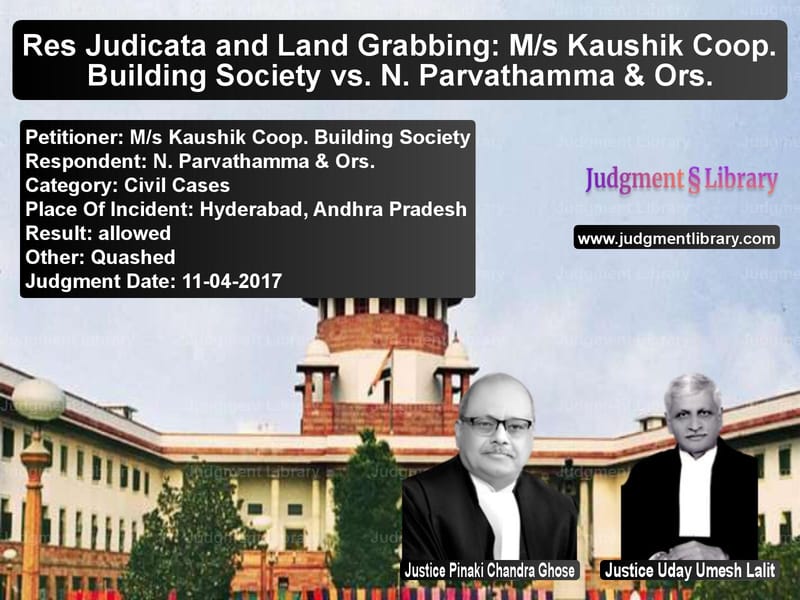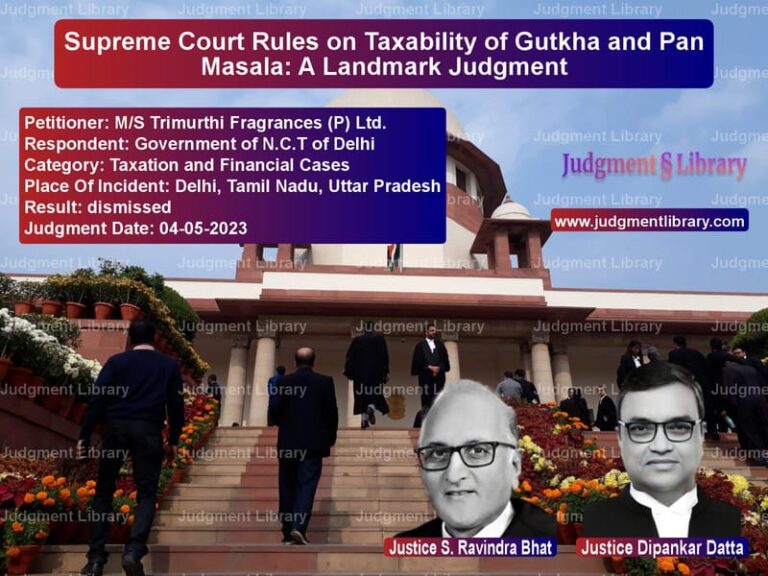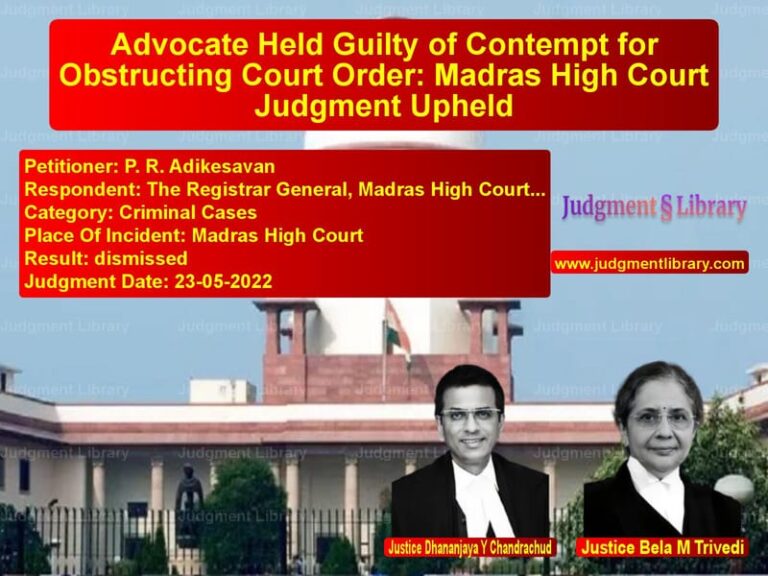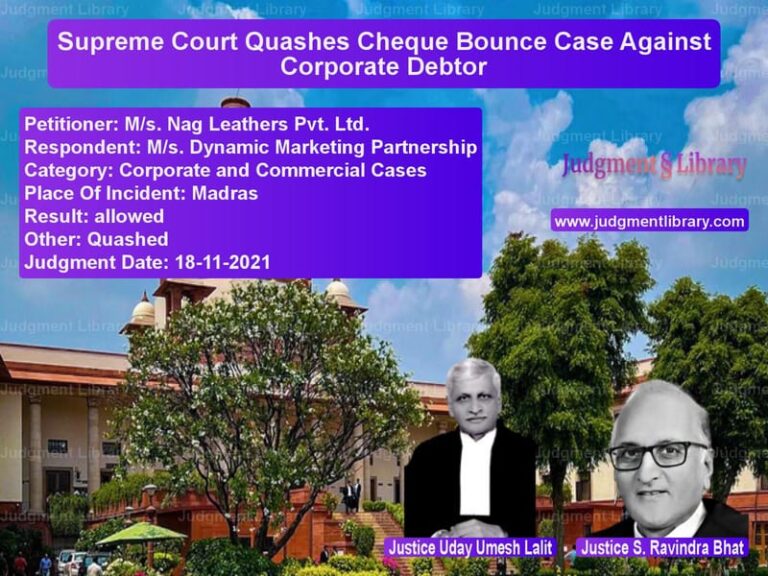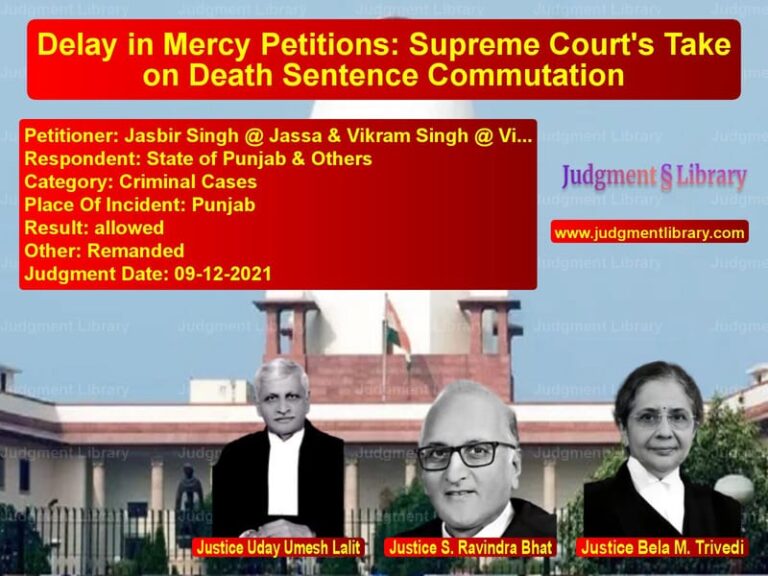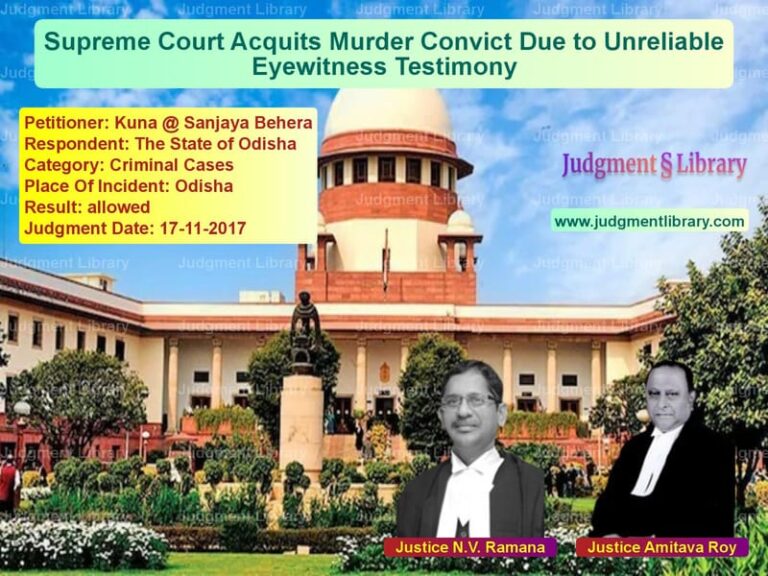Res Judicata and Land Grabbing: M/s Kaushik Coop. Building Society vs. N. Parvathamma & Ors.
The case of M/s Kaushik Coop. Building Society vs. N. Parvathamma & Ors. deals with the application of the principle of res judicata in the context of land grabbing disputes under the A.P. Land Grabbing (Prohibition) Act, 1982. The Supreme Court had to determine whether the High Court was justified in not quashing the proceedings in LGC No. 44/2000 when previous judgments had already determined the title and identity of the disputed land.
Background of the Case
The case arises from a dispute over land in Survey No. 129/68 Paiki, which was purchased by one V.R.K. Shastry under an agreement dated 29.12.1963. Shastry’s suit for specific performance was initially dismissed but later decreed by the High Court of Andhra Pradesh in CCCA No. 14 of 1972. The High Court’s ruling was amended, directing the judgment debtors to execute a sale deed in favor of Shastry or his nominee.
Subsequently, Shastry obtained exemption under the Urban Land Ceiling (ULC) Act, and a part of the land was purchased by the appellant society, M/s Kaushik Coop. Building Society. The Municipal Corporation of Hyderabad sanctioned a layout for the society, and sale deeds were executed in favor of assignees.
Previous Land Grabbing Cases
Between 1989 and 1996, multiple land grabbing cases (LGCs) were filed against the appellant society:
- LGC No. 46/1989 by legal representatives of Md. Moulana
- LGC No. 29/1992 by Sai Nagar Housing Co-operative Society
- LGC No. 15/1996 by the State of Andhra Pradesh
All these cases were dismissed, with the High Court reaffirming that the disputed property was part of Survey No. 129/68 and belonged to the appellant society.
Initiation of LGC No. 44/2000
Despite previous rulings, another land grabbing case, LGC No. 44/2000, was filed by K. Balram and others, claiming ownership over the land through a sale deed from one Abdul Rub, a legal representative of Md. Moulana. The appellant society challenged the maintainability of LGC No. 44/2000, arguing that the issue had already been settled in prior judgments.
High Court Ruling
The High Court dismissed the appellant’s writ petition, stating that whether LGC No. 44/2000 was barred by res judicata was a mixed question of law and fact requiring appreciation of evidence. It allowed the case to proceed before the Special Court under the Land Grabbing (Prohibition) Act.
Supreme Court’s Judgment
The Supreme Court examined whether the principle of res judicata applied to the present case and whether the High Court erred in not quashing LGC No. 44/2000.
Key Observations by the Court
The Supreme Court held that res judicata is a fundamental principle of legal finality, stating:
“Res judicata is not merely a technical rule but a substantive doctrine ensuring that there should be finality in litigation. The same issue should not be reopened once it has been finally decided.”
The Court cited previous rulings, including:
- Sheoparsan Singh vs. Ramanandan Prasad Narayan Singh (AIR 1916 PC 78) – Emphasizing that res judicata is based on public policy.
- Sri Bhavanarayanaswamivari Temple vs. Vadapalli Venkata Bhavanarayana Charyulu (1970) – Holding that res judicata applies beyond the limits of Section 11 of the Civil Procedure Code.
- Syed Mohd. Salie Labbai vs. Mohd. Hanifa (1976) – Establishing that parties, subject matter, and jurisdiction must be the same for res judicata to apply.
The Court found that LGC No. 44/2000 was based on identical claims that had already been adjudicated in previous cases, making it untenable under res judicata.
Final Decision
The Supreme Court allowed the appeal, ruling:
“Once the identity of the property and title has been adjudicated in CCCA No. 14/1972, it operates as res judicata. The High Court and Special Court erred in allowing LGC No. 44/2000 to proceed.”
The Court set aside the High Court’s decision and quashed LGC No. 44/2000, reaffirming the appellant society’s ownership over the land.
Key Legal Takeaways
- Res judicata applies not only to suits but also to all judicial proceedings, including land disputes.
- Once a dispute over property identity and title is settled, it cannot be reopened through fresh litigation.
- The Land Grabbing (Prohibition) Act does not override established principles of res judicata.
Conclusion
The Supreme Court’s ruling in this case reinforces the doctrine of res judicata in land disputes, ensuring finality and preventing frivolous litigation. The judgment upholds property rights and discourages repeated legal challenges over the same subject matter.
Don’t miss out on the full details! Download the complete judgment in PDF format below and gain valuable insights instantly!
Download Judgment: Ms Kaushik Coop. Bu vs N. Parvathamma & Ors Supreme Court of India Judgment Dated 11-04-2017.pdf
Direct Downlaod Judgment: Direct downlaod this Judgment
See all petitions in Property Disputes
See all petitions in Landlord-Tenant Disputes
See all petitions in Specific Performance
See all petitions in Judgment by Pinaki Chandra Ghose
See all petitions in Judgment by Uday Umesh Lalit
See all petitions in allowed
See all petitions in Quashed
See all petitions in supreme court of India judgments April 2017
See all petitions in 2017 judgments
See all posts in Civil Cases Category
See all allowed petitions in Civil Cases Category
See all Dismissed petitions in Civil Cases Category
See all partially allowed petitions in Civil Cases Category

